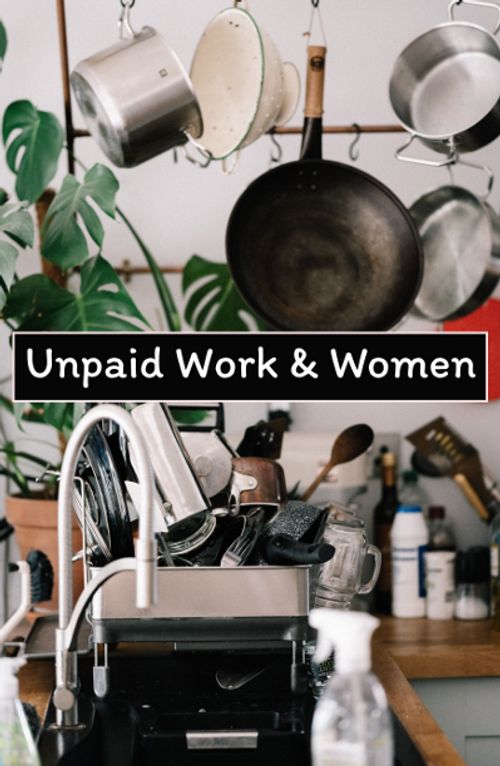Unpaid work and women
Aug 17, 2022 · 2 mins read
0
Share

We all know the benefits of work. Paid work gives freedom and economic independence. The money you earn working is accounted as a part of your country’s Gross Domestic Product (GDP).
Save
Share
But what about the work done or goods/services produced inside a household? Domestic work is mostly done by women and is not accounted for in the calculation of GDP.
Save
Share
Activities like cooking, gardening, cleaning, childcare, laundry, mowing the lawn, walking the dog, or taking care of the elderly are all kinds of domestic work which are largely unpaid.
Save
Share
According to the OECD, men in the USA spend 150.2 mins/day — about 17.5 hrs/week — doing unpaid labour. Women spend 243.2 mins doing unpaid labour/day — about 28.4 hrs/week.
Save
Share
When you add both paid and unpaid work together, women still work longer hours. Most working women have to do two jobs: in their house and in the office.
Save
Share
Thus women have less time for paid work in comparison to men. Yet women fill in for all the social services that sustain families and support economies.
Save
Share
Unpaid care and domestic work represent between 10 and 39 per cent of GDP and can contribute more to the economy than the manufacturing, commerce or transportation sectors.
Save
Share
Because most domestic work is unpaid, womens’ role in the economy is not fully represented or acknowledged.
Save
Share
Research shows that when men do their share of chores, their partners are happier and less depressed, conflicts are fewer, and divorce rates are lower.
Save
Share
Final Note: The real value of unpaid work is still not recognized by global economies. But we individually can reduce the burden on women by splitting communal and household responsibilities more evenly.
Save
Share
0